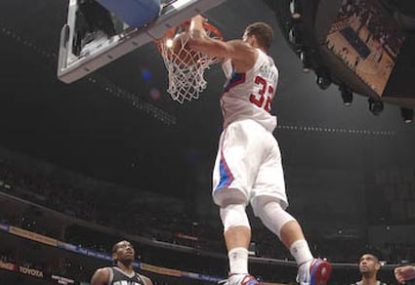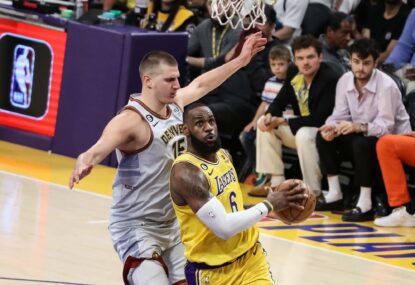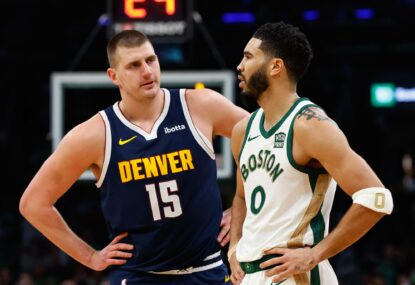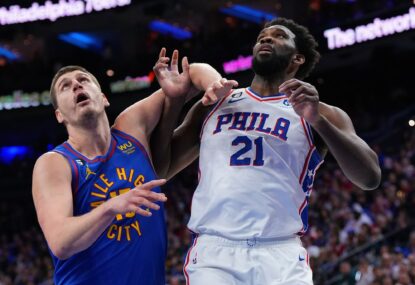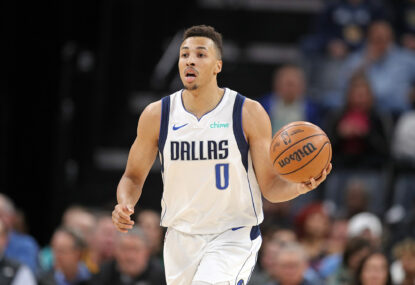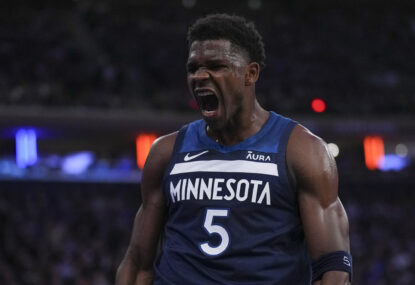The only team in the NBA that feels more inevitable than the Warriors is the Clippers.
When Golden State, last year’s iteration or this year’s full-strength version, are ‘on’, they become larger than the game. They become a force of basketball life, a torrent of coherent mayhem.
Everything slows down as they speed up, the floor is immaculately spaced, and the shots immaculately launched. The other team can only stand, watch and delight in their own pristine death.
The Clippers too, have a habit of mixing with basketball determinism. Like the Warriors, they often feel larger than the game, the focus of a higher power. Their self-destructions are so perfect, so majestic, that they couldn’t possibly be of this planet.
With Oklahoma City moving away from true relevance following Kevin Durant’s departure, the Clippers are the NBA’s greatest intact ‘what if’ franchise of the past few years. What if Chris Paul hadn’t melted down in Game 5 in Oklahoma City in 2014? What if Josh Smith and Corey Brewer hadn’t touched God in Game 6 in 2015? What if Paul and Blake Griffin hadn’t injured themselves in Portland last year, and L.A. had a free crack at a Stephen Curry-less Warriors for the first three games of the second round?
But the more time passes, the less these things feel like bad luck.
L.A. blew a 16-point lead at home in Game 6 against Oklahoma City following the Game 5 debacle. They had three opportunities to close out the Rockets the following year and took none of them. Paul’s injury last year was freakish, but Griffin’s was not – he clearly came back too early.
Bad things don’t happen to the Clippers just because they’re the Clippers and the basketball Gods won’t let them have nice things. They happen mainly because the Clippers let them.

It’s a team that just, for whatever reason, gets anxious at the end of close games, and conspires to lose them in the most creative circumstances. The loss at home to Sacramento was a farce of the most diabolical proportions, an 18-point fourth quarter lead (11 points with three minutes left) coughed up at home to a team that had no incentive to win and little knowledge how to.
It happened the way it always does – senseless turnovers, missed open shots, missed free throws, and missed defensive assignments. The Clippers seemed irrationally trapped in their own torture chamber, standing frozen in a field shaking, waiting to be gunned down by the firing squad, not knowing that they could just walk back to the main road and catch a cab home.
The implosion again Sacramento was preceded three days earlier by another dreadful loss in Dallas, where the Clippers gave up a late lead. In the final two minutes of that game the Clippers had six offensive possessions – the results were three turnovers and three missed shots.
So, where exactly does the problem lie?
Surely not with Chris Paul, a magician as calm as he is magical, and historically a player whose teams thrive in clutch situations. Yet there’s something off about Paul at the end of games. Ever since the OKC disaster, Paul seems to press too hard with the game on the line, and indeed this season in what the NBA defines as ‘clutch situations’ (last five minutes of the game, margin five points or less), Paul is shooting just 31.7 per cent.
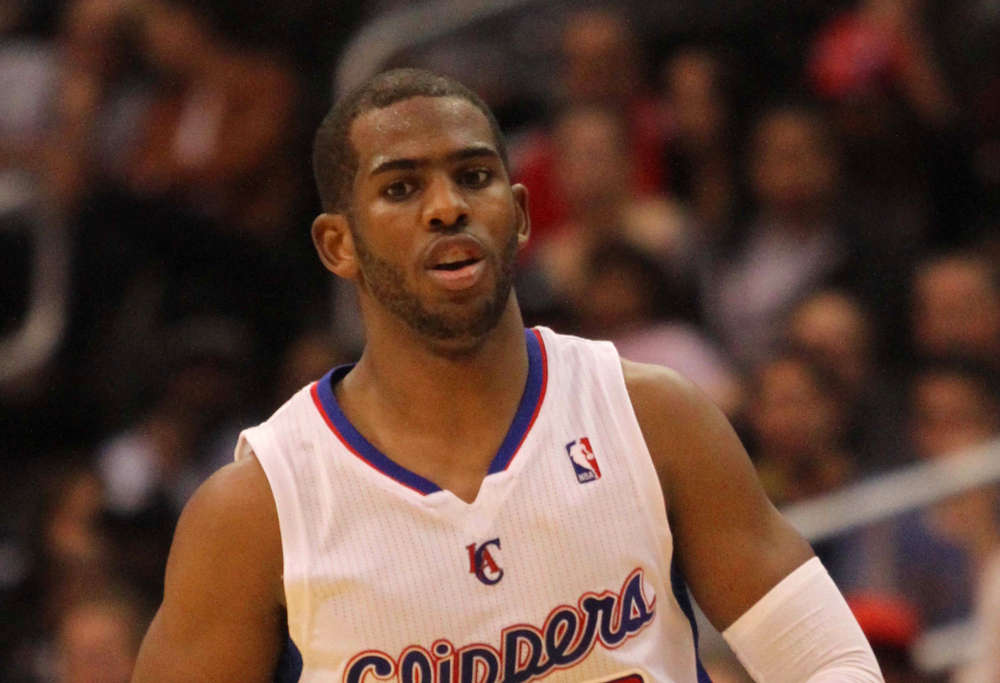
His heroic Game 7 against San Antonio in 2015 presumably should have slayed the demons of 2014, but the subsequent Houston collapse seemed to revive them with even more vigour.
If Paul has been a victim of over-zealousness with the game of the line, Blake Griffin is his opposite. Griffin, simply, gets tight at the end of games, suffocated by pressure instead of impelled by it. His imperfect jumper is proud in the second quarter, but hopelessly timid by the end of the fourth. He passed up an open shot to seal the win against Sacramento, and this season he’s shooting 25 per cent in the clutch.
DeAndre Jordan, of course, wants no part of the end of games either. The Clippers are left with a team perhaps so broken by past calamities that they don’t have the wherewithal to piece themselves back together again.
The talent is still there, although Griffin is diminished, his once transcendent athleticism far less imposing. The cyclone who averaged 26-13-6 in the playoffs two years ago appears to be gone, in his place an excellent, intelligent but flawed star with physical deficiencies on defence and mental ones on offence.
The Clippers may well get out of the first round if they can draw Utah, a team they match up well with because they can’t be punished playing Griffin and Jordan together. But a match-up with the Warriors likely awaits in round two, which looms as a ‘There Will Be Blood’ encounter where Golden State will remain untouched.
With Paul, Griffin and J.J. Redick about to hit free agency, this feels more and more like the end. Maybe the Clippers can summon up all their talent and continuity for one last run, where the breaks go their way, they maximise their size advantage on the inside, Paul ascends, and they upset Golden State and go to the Finals. But even in writing that sentence, its improbability betrays the cold reality, which is that the only continuity that the Clippers have is with disappointment.





























































































